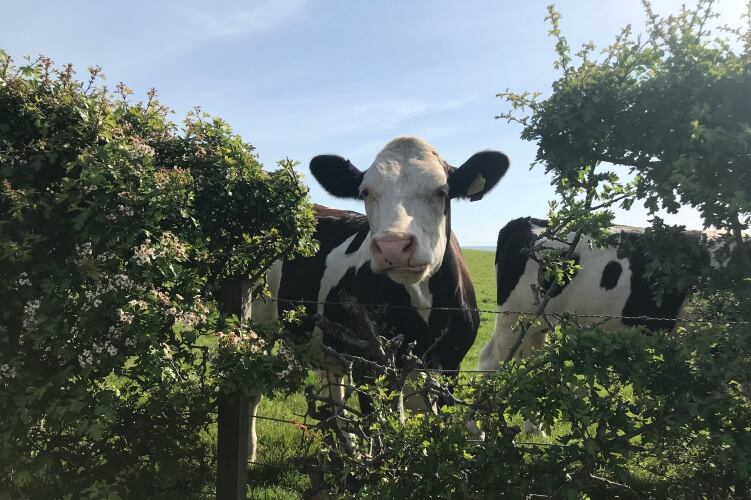The 12-week consultation was launched in June last year, with input from Devolved Administrations, to explore whether regulations could be introduced to ensure fair treatment across the UK’s dairy sector. Imbalances of power within the dairy supply chain were believed to be causing instability for dairy farmers, such as where milk buyers have the ability to set and modify the terms of a contract at short notice.
The Government said responses to the consultation demonstrated the need to introduce new regulations to require certain standards for contracts between those producing and buying milk for processing. The consultation also revealed the circumstances in Northern Ireland may need to be reflected in regulations, and this will be considered.
The UK Government, working with the Devolved Administrations, will develop a new statutory Code of Conduct for the sector, using section 29 of the Agriculture Act 2020.
The new statutory code will seek to provide a guiding framework, establishing minimum standards while providing businesses the flexibility to adapt contracts to their individual circumstances. Further engagement with industry remains necessary to develop the standards to be specified within this framework.
Department For Environment Food and Rural Affairs Farming Minister, Victoria Prentis, said, “This new Code of Conduct will crack down on unfair practices within the supply chain, supporting the dairy sector and ensuring that our dairy farmers remain competitive as they look to the future.”
Scottish Rural Economy Secretary Fergus Ewing said, “The dairy mandatory code of conduct consultation demonstrated that Scottish respondents were the strongest supporters of putting transparency into contracts to protect our farmers. It is very important that we listen to the views of both our hard-working dairy farmers and processors here in Scotland.
“We will now work to put together a new Code of Conduct which will increase transparency within the supply chain moving forward and enable Scottish farmers to compete more fairly in the dairy supply chain.”
Evidence gathered during the Groceries Code Adjudicator Call for Evidence in 2016 highlighted how unfair practices have persisted in the dairy industry. Last year’s consultation looked at whether regulations could be introduced to ensure farmers are treated fairly within the supply chain.
This evidence suggested unfairness in the supply chain has sometimes been caused by milk buyers having the power to set and modify the terms of a contract, often with little notification. This leads to uncertainty and ambiguity that can be unfair to dairy farming businesses.
Government officials will continue to engage with industry representatives of both producers and processors as they design the new code to ensure it delivers fairness and transparency for the entire supply chain across the UK.
Farming unions approve development of new code
The UK farming unions say putting a new Dairy Code of Conduct into legislation will provide a more effective dairy supply chain in which farmers and processors can work together to ensure fairer and equitable terms for all dairy farmers, while delivering great value dairy products for consumers.
In a joint statement, dairy farmer representatives¹ of the four UK farming unions said, “For too long, dairy farmers have borne far too much of the risk in the dairy supply chain and inappropriate contract terms are often at the root of the problems. Contracts have been weighted too heavily in favour of the milk buyer who can change terms and pricing mechanisms, and even introduce price cuts without negotiation, while locking farmers into changes without recourse.
“The UK farming unions have been fighting for years to change the structure of how the dairy sector operates. We want more sustainable, progressive and equitable relationships between farmers and processors, so we can collectively tackle the issues we face. This is all the more crucial as we build back from the impacts of Covid-19 and work towards new trading arrangements outside the EU.”
The unions said they have been monitoring closely how contracts work around the world.
“Although we recognize that our dairy market has some differences, for example compared to Australia, we think there are lessons we can learn in building our own model. Even within the UK, there are clearly markets operating in different ways, such as Northern Ireland, and this will need to be taken in to account when designing the new code.”
However, the unions stressed this is just the beginning of ensuring the new code works, and that industry will take on board the results of the consultation and work collaboratively to find a positive way forward.
“It’s essential that the UK dairy market is fit for purpose for all parts of the supply chain, supporting innovation and resilience in UK dairy, and supplying quality dairy products for the public to enjoy.”
Dairy UK welcomes announcement
Dairy UK also welcomed the Government response to consultation on the regulation of milk contracts.
Commenting on the Government’s publication today of its response to the consultation on regulation of contracts, Dr Judith Bryans, chief executive of Dairy UK, said, “We welcome Defra and the Devolved Administrations response to the consultation on regulation of contracts. Dairy UK is supportive of the introduction of a mandatory Code of Conduct to ensure a level playing field on contracts, as we set out in our consultation response. We therefore welcome the commitment made today, particularly the need for flexibility and transparency within the supply chain.
“We look forward to seeing more detail on the Code and to working closely and constructively with Defra and the Devolved Administrations on how the Code will translate into contract working for the industry, and to play our part in helping to ensure its successful implementation into the market.”

